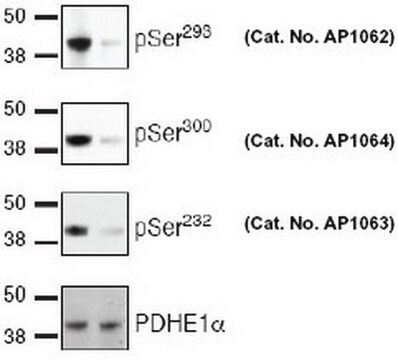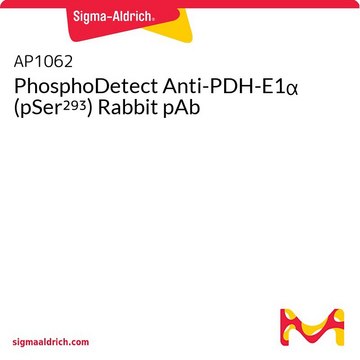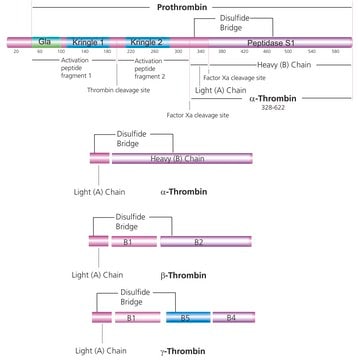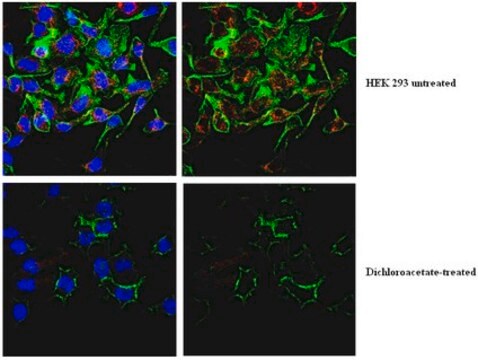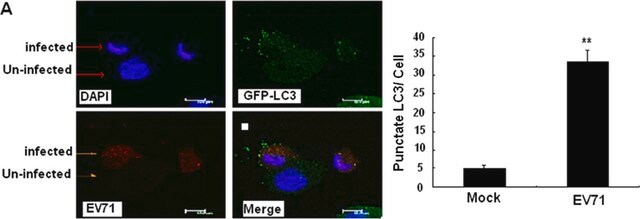AP1064
PhosphoDetect Anti-PDH-E1α (pSer³⁰⁰) Rabbit pAb
liquid, Calbiochem®
Synonym(s):
Anti-Pyruvate Dehydogenase pSer³⁰⁰ Rabbit pAb
About This Item
Recommended Products
biological source
rabbit
Quality Level
antibody form
affinity isolated antibody
antibody product type
primary antibodies
clone
polyclonal
form
liquid
contains
≤0.1% sodium azide as preservative
species reactivity
human
manufacturer/tradename
Calbiochem®
storage condition
OK to freeze
avoid repeated freeze/thaw cycles
shipped in
wet ice
storage temp.
−20°C
target post-translational modification
phosphorylation (pSer300)
General description
Immunogen
Application


Immunoblotting (0.5 μg/ml)
Immunocytochemistry (1 μg/ml)
Packaging
Warning
Physical form
Reconstitution
Analysis Note
HEK293 cells treated with dichloroacetate
HEK293 cells
Other Notes
Seifert, F., et al. 2007. Biochemistry 21, 6277.
Lee, J., et al. 2007. Mol. Cell Prot. 4, 669.
Patel, M.S. and Korotchkina, L.G. 2006 Biochem. Soc. Trans.34, 217.
Korotchkina, L.G., et al. 2001. J. Biol. Chem. 40, 37223.
Legal Information
Not finding the right product?
Try our Product Selector Tool.
Storage Class Code
12 - Non Combustible Liquids
WGK
WGK 1
Flash Point(F)
Not applicable
Flash Point(C)
Not applicable
Certificates of Analysis (COA)
Search for Certificates of Analysis (COA) by entering the products Lot/Batch Number. Lot and Batch Numbers can be found on a product’s label following the words ‘Lot’ or ‘Batch’.
Already Own This Product?
Find documentation for the products that you have recently purchased in the Document Library.
Our team of scientists has experience in all areas of research including Life Science, Material Science, Chemical Synthesis, Chromatography, Analytical and many others.
Contact Technical Service